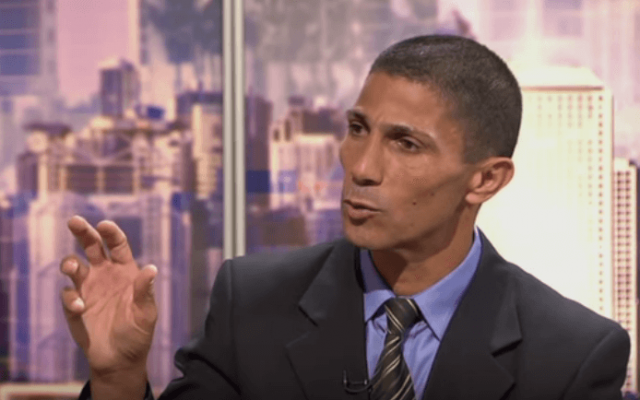From shepherd to policy aide
ISRAEL's first Bedouin diplomat, Ishmael Khaldi, has visited Australia, speaking at an Australia/Israel & Jewish Affairs Council lunch in Melbourne about his journey from being a shepherd to becoming a policy adviser to a senior Israeli minister of state.
ISRAEL’s first Bedouin diplomat, Ishmael Khaldi, has visited Australia, speaking at an Australia/Israel & Jewish Affairs Council lunch in Melbourne about his journey from being a shepherd to becoming a policy adviser to a senior Israeli minister of state.
Khaldi grew up as a shepherd in a small Bedouin village in northern Israel, one of 11 children. He began working for the Israeli Foreign Ministry in 2004, and two years later was appointed to serve in San Francisco as Israel’s Deputy Consul-General to the US Pacific Northwest. In 2009 he worked as a policy adviser to then Israeli foreign affairs minister Avigdor Lieberman.
He said his career choice gave him a “moral responsibility to stand up” as a Bedouin and a Muslim, because whenever Israel is discussed, the treatment of its minorities inevitably arises.
Having spoken to audiences around the world – from indigenous communities in Australia and Alaska, to campuses with strong pro-BDS activity in London and San Francisco – Khaldi said people are often surprised to learn about the Israeli Bedouins and their warm relationship with Israel.
For Khaldi, that relationship is personal, as his grandmother helped Jewish pioneers at Kibbutz Kfar HaMaccabi, which pre-dates Israel. That story was detailed in his autobiography A Shepherd’s Journey.
In that book, he wrote, “Our village has an excellent relationship with the kibbutzniks and my late grandmother Nof was considered practically family to the kibbutz pioneers … She worked with them when they first began cultivating the fields in the area and when they planted the citrus orchards that now surround the kibbutz. Many Bedouins from the area worked for the kibbutzim as agricultural workers.”
Reflecting that the relationship of the Bedouins to Israel is different to many other Israeli Arab communities, with many Bedouins serving in the IDF and police force, Khaldi said he also served in the IDF and Israel Police before becoming a diplomat.
He noted the Israeli-Arab vote was very low in the last election, which appears to reflect growing frustration. He said while Israel is not a perfect society and more is needed to improve the position of Israeli Arabs, including the Bedouins, over the past decade there has been significant investment in Israeli-Arab communities.
Khaldi said that while he is often criticised by anti-Israel groups for being an Israeli diplomat, he sees himself as a loyal Israeli who is also trying “to make Israel better”.
AJN STAFF


comments